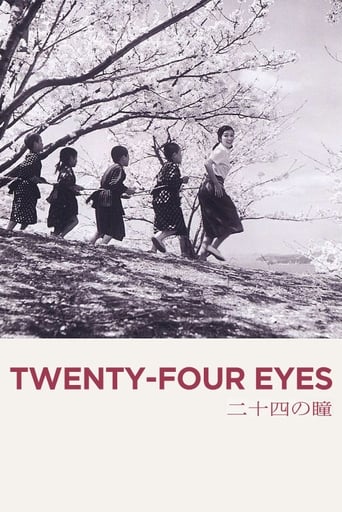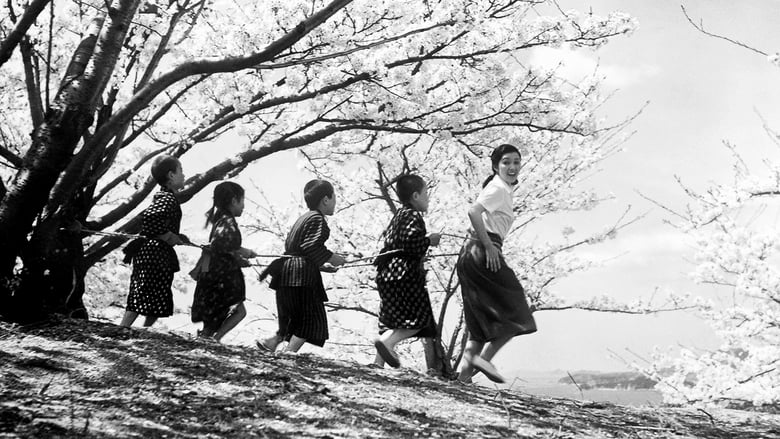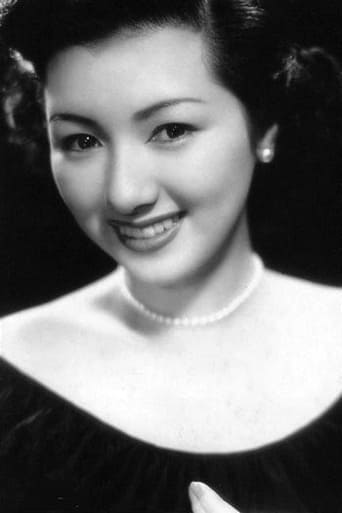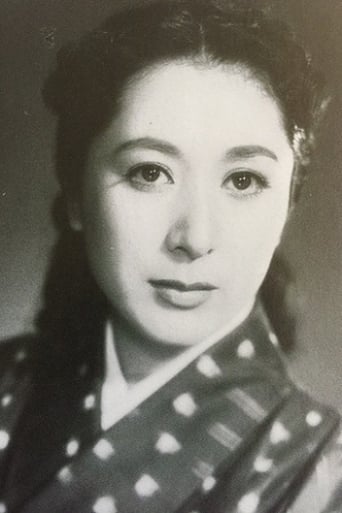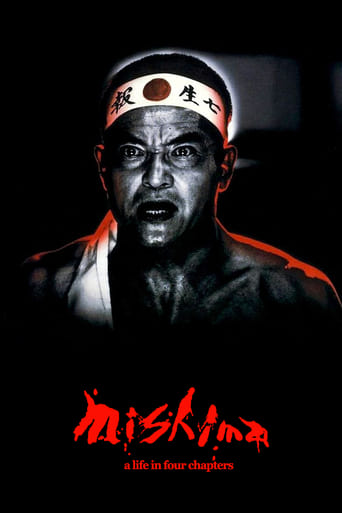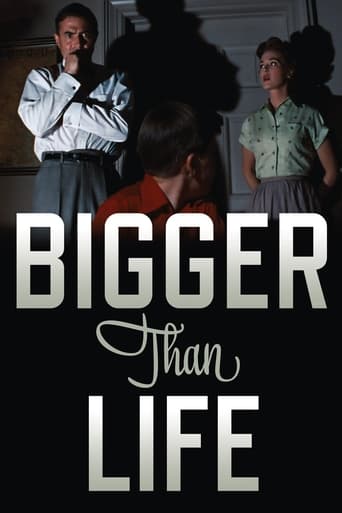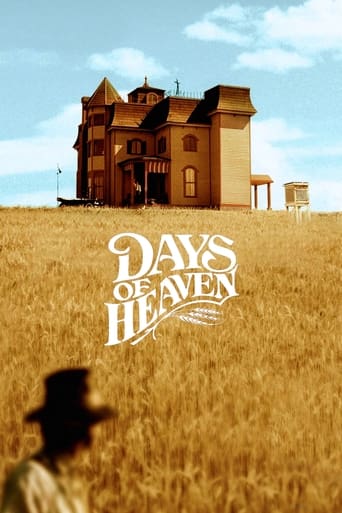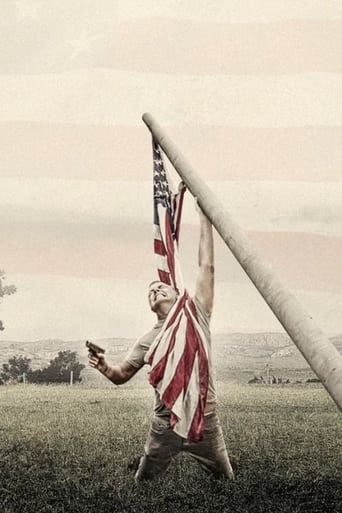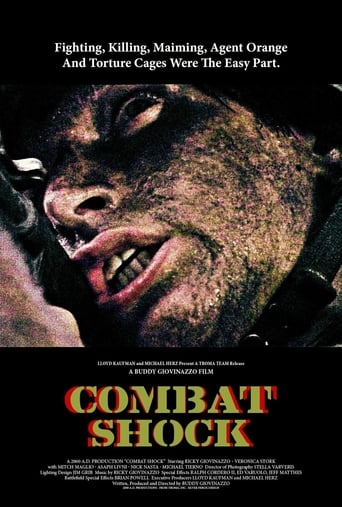Twenty-Four Eyes (1954)
In 1928, schoolteacher Hisako Oishi takes a post on the island of Shodoshima teaching a group of twelve first grade students. In the following years, they face poverty, the rise of nationalism, and finally war.
Watch Trailer
Free Trial Channels
Cast


Similar titles
Reviews
Don't listen to the negative reviews
A Masterpiece!
Tells a fascinating and unsettling true story, and does so well, without pretending to have all the answers.
The film never slows down or bores, plunging from one harrowing sequence to the next.
25 years ago I made up my mind I would move to Japan. So I wrote to people in Japan who had lived there for over thirty years, and asked them what would be the #1 movie I should watch that encapsulated the spirit of the Japanese.They all suggested "24 Eyes". Now, after having lived in a strictly Japanese environment for five years, and having seen well over thirty Japanese movies, not to mention over a thousand hours of TV shows and animae, it is still the #1 to me. By today's standards it will seem extremely "G" rated, a little too slow and a bit too long. But for those who want to really understand people, and where they are coming from, I can't think of a better movie to recommend. I wish every culture, particularly those that may be going extinct, would use this movie as a guideline to tell their story.
This film is a not-so-subtle piece of propaganda, written primarily for the people of Japan who apparently needed to wallow in the self-pity they experienced in the wake of World War II. Masterfully set around a benevolent, loving and "enlightened" teacher - who even manages to "shock" the island's inhabitants by wearing Western clothes and riding a bicycle - and her twelve original pupils, whose "twenty-four teary eyes" are constantly exploited for the manipulation of the viewer, the story does nothing to appeal to the collective sense of shame and remorse that the Japanese nation should have felt. War was treated as something of a "brutal reality" that somehow was "forced" on Japan and its inhabitants, to the point that she had to send her young men to spill their blood and give their lives heroically in the defense of the "motherland." Most infuriating was the casual mention of the "incidents" in Manchuria and Shanghai. Not even a word, if only in passing, about Nanking! Let the viewer - especially the Japanese viewer! - remember that many of the girls raped in Nanking were not much older than the teary-eyed girls shown in the film. Chinese young men fared no better as many were decapitated or buried alive for the "sport" and amusement of the Japanese butchers! This is the most shameful film in memory, one that even the Nazi propaganda machine would have had a hard time pulling off - yes, Joseph Goebbels would have been proud of it. A TOTAL WASTE OF TWO-AND-A-HALF HOURS! I will have to wash this filth from my mind tomorrow by viewing the 2007 documentary "Nanking." And, finally, a question for all those who have lavished praise for the story, the actors the director and his cinematic "accomplishment": If this story had been written in Germany in 1954 by a famous film-maker and presented to the world as a reality in that country during the years the story covered, would the movie critics' reaction be the same? Would YOUR reaction be the same? Something to think about!
People who view this film would do well to consider the sentiment of post-war Japan in the mid-50s, when the future was still uncertain and the vast devastation and shame caused by the war were prevalent in the mindset of its citizens. The timing for this film's release was significant, because perhaps for the first time, it permitted the people of Japan to cry unabashedly for themselves, far removed from any political statement so frequent in Shochiku films such as with many of Kurosawa's classics. Movies at the time tended to have positive, uplifting themes that motivated the populous to help rebuild the country into a modern democratic nation. You can thank Douglas MacArthur for that. The post-war generation was now almost 10 years old, and in the Japanese psyche was the need for justification for its darkest period in history.This film served as a reminder of the horrors of war, not from the battlefields, but from the emotional scars left on its children who lived and died during it. Hideko Takamine brilliantly played the role of a school teacher on a typical remote island community in south Japan during an increasingly militarist government. As was customary at the time, the same teacher saw to their students' education from primary to high school, forming a lifetime bond. Director Keisuke Kinoshita's camera work is nothing less than genius, beautifully portraying the transitions of seasons from year to year. The water, sand, and dust textures are so distinct that you almost forget that it was filmed in black and white. The character closeups are never exaggerated and the 12 children actors (hence "24 Eyes") do an outstanding job portraying how they end up sacrificing their childhood dreams due to poverty and for national duty. Of symbolic note is the appearance of the Island bus, which is seen at first with Japanese kanji characters painted on the side. Later in the film, it's written in English as "Shima Bus", signifying how modernization has reached the island after the war.From cast, location and cinematography, Nijushi no Hitomi is a masterpiece of emotional storytelling.
Whenever I tell someone about a Japanese movie called "24 Eyes", everyone asks me if it's a horror movie, because of the title and because of the recent boom of Japanese horror movie Hollywood remakes.I always tell them that yes, it is a horror movie. It is a movie about a woman who is dissed by an entire town because she dared to ride in a bicycle. A movie about people who actually believe that fishing is more important than music. A movie about little children who prefer to die in a war than being poor like their parents.What else could be more horrorific than all that? Black water dripping from a ceiling? A little girl walking backwards with hair covering her face?I don't think so.

